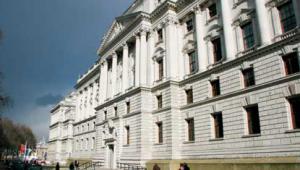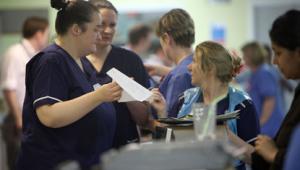The think-tank has today published analysis which shows that raising public sector pay in line with inflation or private sector pay would cost around £3bn a year in 2018/19, rising to around £6bn a year the following year.
This would be extra expenditure on the £181bn the government spends annually on employing 5.1 million public sector workers – a recent GMB study shows the number of public sector workers has dropped by nearly a million since 2010.
Researchers at the IFS warn that continuing the public pay restraint would take public pay to historically low levels relative to that in the private sector.
According to the report, funded by the Economic and Social Research Council, although average weekly public sector pay has fallen by 4% in real terms since 2009/10, the fact that private sector pay has done similarly badly since 2008 means that the gap between public and private sector pay is just getting back to its pre-recession level.
Jonathan Cribb, a senior research economist at the IFS, and author of the report, said: “If it [government] decides to maintain the 1% cap, we should expect increasing difficulties in recruiting, retaining and motivating high quality public sector staff, reducing the quality and quantity of public services.
“But increasing pay for these workers implies substantial extra costs to public sector employers.”
He warned that raising taxes, cutting other spending or borrowing more were possible ways the government could pay for any proposed pay increases.
Cribb stated it would be “very challenging” to ask public bodies such as the NHS, with its vast workforce, to pay for higher wages from existing budgets.
His warning comes after Theresa May's cabinet agreed to lift the 1% pay cap for police and prison officers but this increase still constitutes a real-terms cut as it is below the 2.9% inflation rate.
Today's report also noted that there is a “strong case” to increase pay for higher skilled public sector workers.
Relative to the private sector these higher paid groups have fared least well. The least skilled and lowest paid public sector workers still – again on average – have wages which are a little higher relative to those in the private sector than they were in 2007/08.
For the almost two-thirds of public sector workers who have completed higher education, pay is slightly lower compared to the private sector than it was prior to the recession.
This group has also seen particularly large increases in the contributions they have to make to their workplace pensions.
Public sector pay is also lowest compared to private sector pay in London and the South East.











